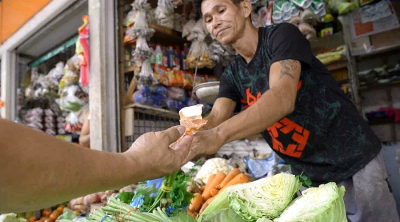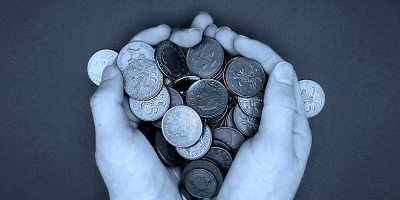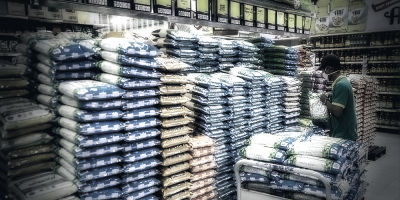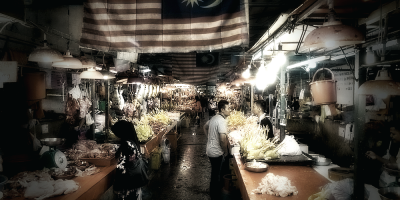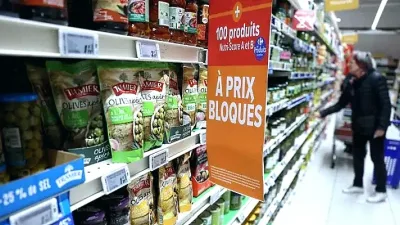We don’t have the financial means to buffer the rising goods prices after handing out allowances to B40 households.
Domestic trade and consumer affairs minister Alexander Nanta Linggi announced on Tuesday that the government would discontinue the ceiling price mechanism for chicken, eggs and bottled cooking oil (2, 3 and 5 kg) with effect from July 1, and the retail prices would be determined by the market.
This means that starting next month, the prices of these essential food items will most probably increase drastically. But as the price hike can only be explained with the cost factor, we believe it is very hard for the ministry to take actions against profiteering businesses citing the Price Control and Anti-Profiteering Act 2011 for the simple reason that inflation has become an indisputable global phenomenon today.
In addition to the above essential food items that will see their ceiling prices removed, it is widely anticipated that the prices of other food items such as flour, white sugar, rice, vegetables and livestock products will also rise in the next wave of price hikes, and this is going to take a heavy toll on the prices of mixed rice which many Malaysians take on a daily basis!
Prices of livestock products have gone up as a consequence of globalized supply crunch, while costlier raw materials will bring up the prices of processed foods and manufactured products, and the effects will eventually be manifested in tertiary industry services.
Simply put, inflation has spread extensively from cereals and cooing oil to meats, processed foods and all the way to F&B services.
End consumers like us will eventually made to bear the pressure from the inflation.
We believe the worst is yet to come because we have already felt the impact from the economic sanctions imposed on Russia in under four months. Things will only get worse in the days to come!
First and foremost, global supply of crude oil, natural gas, coal, steel, chemical fertilizers and food will become more serious if the sanctions on Russia are not lifted.
Secondly, India is experiencing unprecedented drought this summer, while the weather patterns in China are equally unpredictable, not to mention the outbreak of swine fever in Thailand, all threatening food and livestock production.
Thirdly, the psychological factor is in play. Unless they are suffering from depleted foreign reserves, many countries will opt to limit their food and raw material exports, sending goods prices higher as a result of short supply.
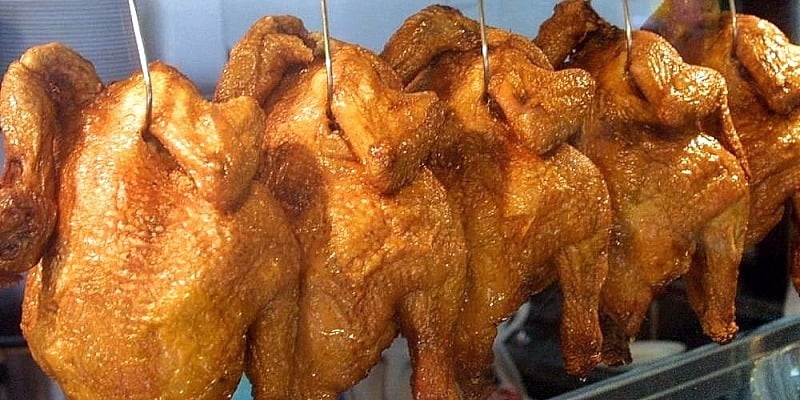
The above factors are expected to drag the world into spiraling inflation in the second half of this year through to next year.
At this moment, the inflation rates of most countries in the world are close to their 40-year highs. Very soon the world will see its worst food crisis since World War II.
We currently produce about 660,000 barrels of crude oil every day and are relatively self sufficient for some of the livestock products, although we can only supply 65% of our daily rice consumption. As such, we should be able to cap the inflation within 4%.
In neighboring Singapore which fully relies on imports for its food, the food inflation rate topped 4.1% in the second quarter of this year. Nomura Holdings has projected Singapore’s food inflation for the second half to double to 8.2%. Prior to that, the city-state’s petrol price has already gone up to approximately RM10.53 per liter!
Nomura also said Asia’s food prices went up by 5.9% compared to last December, and countries like South Korea, the Philippines, Singapore and India are expected to be the hardest hit.
As for European countries that used to rely heavily on Russian gas, they have to lift their coal usage restrictions but this will only worsen the world’s environmental pollution.
Meanwhile, the Biden administration is mulling 18.4 cents per gallon of fuel tax, and is considering to remove some of the tariffs for products imported from China in a bid to contain the runaway goods prices.
Here in Malaysia, it appears that it is inevitable for the government to gradually abolish the subsidies for various food items, as we don’t have the financial means to buffer the rising goods prices after handing out allowances to B40 households.
Our foreign reserves are also declining steadily to only US$111.4 billion as of May 13, enough to sustain 5.6 months of imports, and $5.3 billion less than six months ago.
ADVERTISEMENT
ADVERTISEMENT






